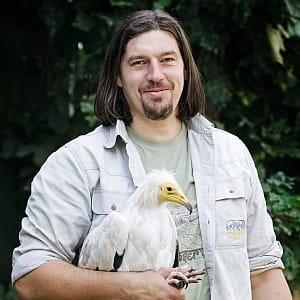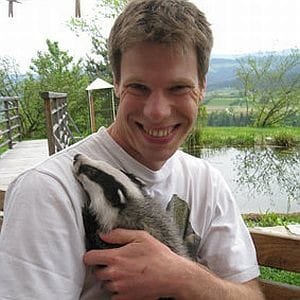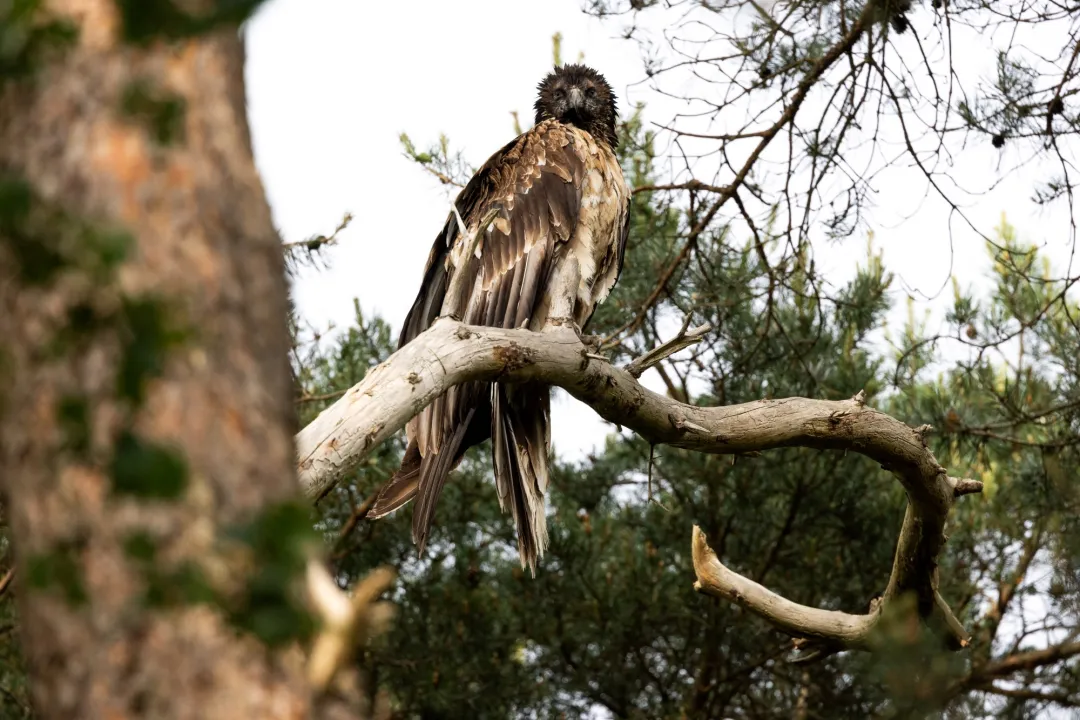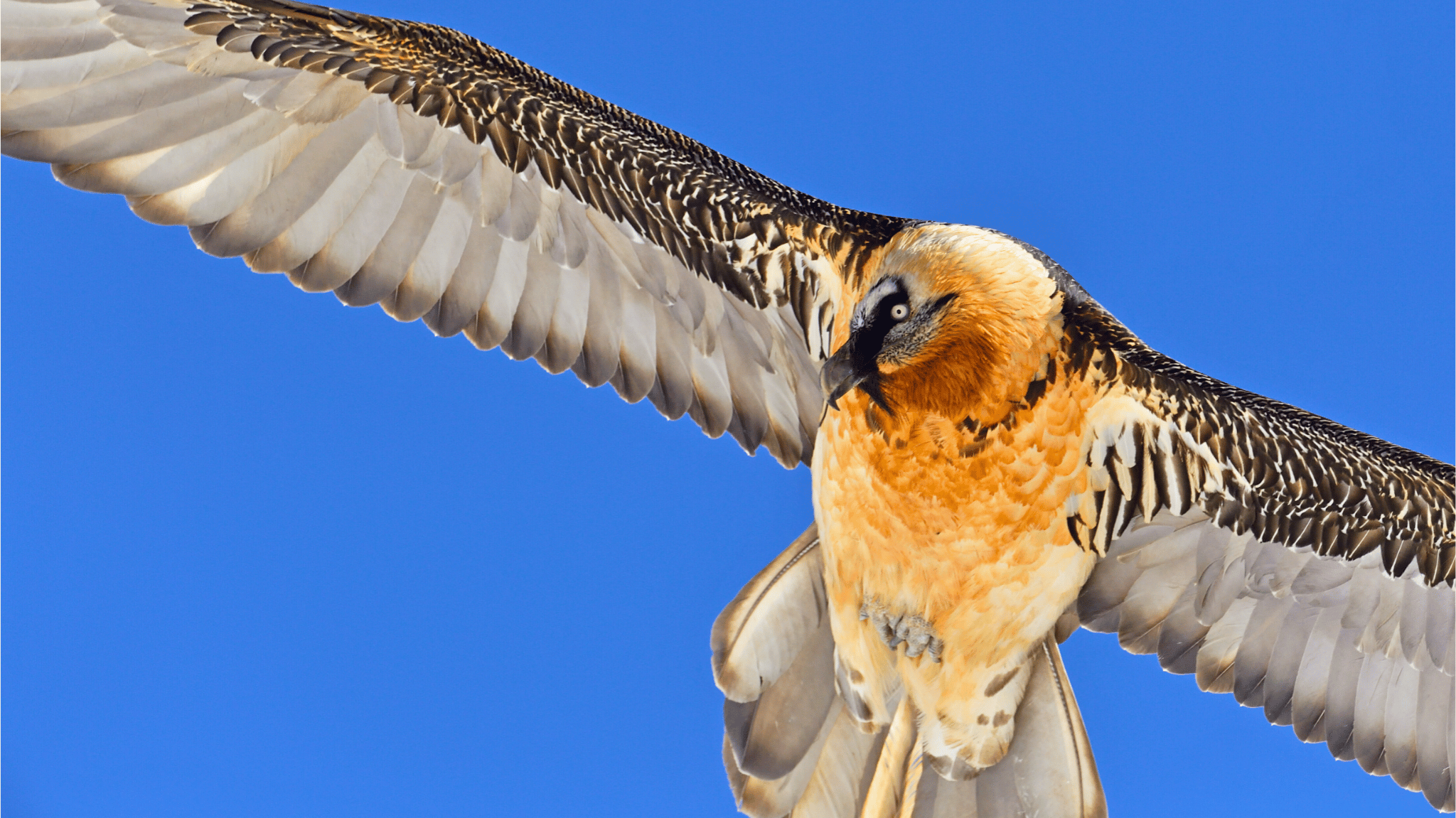
Since 2010 we have released 18 Bearded Vultures as part of the LIFE GYPCONNECT and this year as a result of a brilliant breeding season we released a grand total of nine birds into the wild in France as part of this important conservation project.
Connecting populations
One of the aims of the LIFE GYPCONNECT project is to reintroduce a population of Bearded Vultures into the Massif Central mountain range and the French pre-Alps to connect the reintroduced population in the Alps with the population in the Pyrenees.
So far in the Bearded Vulture Release Season we have released three birds in the Parc Naturel Régional des Grands Causses on Saturday 6 May and two birds in Parc Naturel Régional du Vercors on Saturday 18 May. Originally there was due to be a second release of two birds again in the Parc Naturel Régional des Grands Causses on 3 June that would be the last of the releases for the 2019 Release Season, however, a surprise in the results in the sex determination the young chicks meant we have an unexpected release as part of the project.
Unplanned releases of Bearded Vultures
As coordinators of the captive breeding network of zoos, specialised breeding centres and private collections we manage the 175 birds closely to ensure optimum breeding results. Over the couple of years, there has been a bias towards females among the birds we look after, which we hoped would be resolved this year with a record number of 30 chicks surviving. However, when the sex determination results came back the four birds reserved for the breeding network were female, so had to be released into the wild. Two were destined for Andalucia region of Spain and we decided to release two as part of the LIFE GYPCONNECT project in France.
Carmen and Pamela
The two female birds were given the names Carmen and Pamela, Carmen was born on 21 February at Ostrava Zoo in the Czech Republic whilst Pamela was born on 25 February at the Green Balkans Wildlife Rehabilitation and Recovery Centre in Bulgaria. Pamela began her journey from Bulgaria to France a few days ahead of her release into the wild.



Releasing Carmen and Pamela into the wild
The extra release of the two female Bearded Vultures for the LIFE GYPCONNECT project took place on Saturday 25 May at the Parc Naturel Régional des Baronnies Provençales and even though there was no formal presentation, the event attracted a small crowd to wish the birds well.
After the presentation the two birds were transported to the release site where they will be monitored and fed, without any human contact, until they fledge and take their first flights into freedom.
Buisson and Cévennes
After the surprise extra release of Carmen and Pamela the final release of young birds in the LIFE GYPCONNECT project took place on Friday 3 June at the Parc Naturel Régional des Grands Causses. Both birds were born and raised at two of the specialised breeding centres that are part of the captive breeding network, Buisson from the Richard Faust Centre in Austria and Cévennes from the Guadalentín Specialised Breeding Centre in Andalucia, Spain.
Despite the bad weather the two birds were transported to the release site and settled into their new surroundings very quickly and were visited by curious vultures inlcluding Bearded Vulture Kirsi who was released at the same site in 2013.
Carmen, Pamela, Mistral and Elvio like all the other Bearded Vultures released as part of the LIFE GYPCONNECT project have been fitted with GPS transmitters that will help us and our partners understand how they move around their new home.
Releasing nine birds in this one year alone brings the total released as part of this conservation project to 27, is a great result for the project that and we would like to thank all our partners in the captive breeding network for helping us make this a success.
This year we will have released 22 captive-bred birds into the wild, our best Bearded Vulture Release Season to date.
You can follow all of the releases by following #BeardedVultureReleaseSeason on Twitter, Facebook and Instagram.

Led by the League pour la Protection des Oiseaux (LPO), the LIFE GYPCONNECT project aims to establish a breeding population of Bearded Vultures in the Massif Central and Department of the Drôme. Releasing captive-bred Bearded Vultures into the wild at sites such as the Parc Naturel Régional des Grands Causses, Parc Naturel Régional des Baronnies Provençales and Parc Naturel Régional du Vercors will create a core population that will connect the two populations of the species in the Alps and Pyrenees. To facilitate movements between the new population and the Alpine and Pyrenean populations the LIFE GYPCONNECT team is creating a network of supplementary feeding stations, and tackling threats such as poisoning, and collision and electrocution with the electricity infrastructure.










